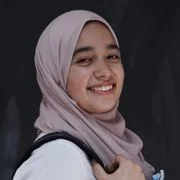

Hire The Best OpenCV Tutor
Top Tutors, Top Grades. Without The Stress!
10,000+ Happy Students From Various Universities
Choose MEB. Choose Peace Of Mind!
How Much For Private 1:1 Tutoring & Hw Help?
Private 1:1 Tutors Cost $20 – 35 per hour* on average. HW Help cost depends mostly on the effort**.
OpenCV Online Tutoring & Homework Help
What is OpenCV?
OpenCV stands for Open Source Computer Vision Library. It is a cross-platform API (Application Programming Interface) written in C/C++ that provides tools to process images and videos in real time. Its used for face detection in smartphones, augmented reality filters, robotics vision systems, medical image analysis, and more.
Popular alternative names include Open Source Computer Vision Library, cv or cv2 in Python, Intel Computer Vision Library, OpenCV‑Python.
Core areas include image processing, where smoothing, thresholding and filtering improve photo quality (like tweaking a selfie’s brightness). Computer vision handles object detection (security cams spotting intruders), feature detection and matching (panorama stitching in Google Photos), video analysis (tracking players in sports broadcasts), camera calibration and 3D reconstruction (AR apps), machine learning (ML) and deep neural networks (DNNs) for classification and face recognition. It also offers GPU acceleration, graph‑based algorithms and modular APIs that link with TensorFlow or PyTorch.
In 1999 engineers at Intel began crafting what would become OpenCV. The first public release 1.0 arrived in 2000 under an Intel license. By 2006 it switched to the BSD license and the community grew rapidly. Python and Java wrappers debuted in the 2.x series around 2009–2010. GPU support via CUDA appeared in version 2.3 (2011), making real-time apps faster than ever. Android and iOS APIs landed in 2.4 (2012). The big 3.0 revamp came in 2015, introducing a DNN module. OpenCV 4.0 shipped in 2018 with modern C++11 code. Successive 4.x updates improved G-API pipelines and added more language bindings.
How can MEB help you with OpenCV?
Do you want to learn OpenCV? MEB offers private, one‑on‑one OpenCV tutoring online.
If you are a school, college, or university student and you want top grades in assignments, lab reports, live tests, projects, essays, or dissertations, try our 24/7 instant online OpenCV homework help. We prefer WhatsApp chat. If you don’t use WhatsApp, email us at meb@myengineeringbuddy.com.
Most of our students are from the USA, Canada, the UK, the Gulf, Europe, and Australia.
Students come to us because some subjects are hard, assignments feel endless, and concepts can be tricky. They may face health or personal issues, learning difficulties, part‑time work, missed classes, or they might find it hard to keep up with their professor’s pace.
If you are a parent and your ward is struggling with OpenCV, contact us today. We will help your ward succeed in exams and homework. They will thank you!
MEB also offers help in more than 1000 other subjects with expert tutors and subject‑matter specialists. We make learning easier and help you do well in school. Remember: when things get tough, asking a tutor for help can make your academic life stress‑free.
DISCLAIMER: OUR SERVICES AIM TO PROVIDE PERSONALIZED ACADEMIC GUIDANCE, HELPING STUDENTS UNDERSTAND CONCEPTS AND IMPROVE SKILLS. MATERIALS PROVIDED ARE FOR REFERENCE AND LEARNING PURPOSES ONLY. MISUSING THEM FOR ACADEMIC DISHONESTY OR VIOLATIONS OF INTEGRITY POLICIES IS STRONGLY DISCOURAGED. READ OUR HONOR CODE AND ACADEMIC INTEGRITY POLICY TO CURB DISHONEST BEHAVIOUR.
What is so special about OpenCV?
OpenCV is special because it offers a huge set of ready-made tools for working with images and videos. It’s open source and free, so anyone can use or modify it. It works on many platforms like Windows, Linux, Mac, Android, and iOS, and supports popular languages like C++, Python, and Java. Compared to other computer vision libraries, it’s more mature, stable, and widely used.
OpenCV’s advantages include high performance for real-time tasks, a vast library of algorithms, and strong community support with tutorials and examples. It’s free to use in academic or commercial projects. However, its C++ roots can be tough for beginners, and it lacks built-in deep learning tools compared to modern frameworks like TensorFlow or PyTorch. Debugging complex image processing workflows can also be challenging.
What are the career opportunities in OpenCV?
Many universities now offer advanced courses in computer vision after you learn OpenCV. Students can take master’s degrees in computer vision, machine learning, robotics or image processing. They can also do research projects or pursue PhDs in areas like autonomous driving, medical imaging or augmented reality.
Jobs for OpenCV users include computer vision engineer, machine learning engineer, robotics developer, software engineer and AR/VR developer. They write code to process images or video, design and test vision algorithms, build prototypes, optimize performance and integrate vision solutions into real products like apps, robots or cameras.
We study OpenCV to learn core vision and image processing techniques. Practicing with OpenCV helps us understand how computers see and analyze pictures and videos. It also improves our programming skills, makes it easier to build smart apps and raises our chances of landing tech roles.
OpenCV is used in face recognition, object detection, video tracking, medical image analysis, self‑driving cars, industrial inspection and augmented reality. Its advantages include free open‑source code, a strong C++ core, Python and Java interfaces, fast performance, cross‑platform support and a large community for help.
How to learn OpenCV?
Start by installing Python and OpenCV on your computer. Set up a virtual environment, then follow a beginner tutorial to learn how to load and display images. Move on to simple projects like edge detection, face recognition and color filtering. Practice by tweaking parameters, reading the official documentation and solving small problems step by step.
OpenCV isn’t too hard if you know basic Python. The library handles many complex tasks for you. Concepts like image filtering or object detection take practice, but you can learn them gradually by building real projects.
You can definitely learn OpenCV on your own using free tutorials, forum help and practice exercises. A tutor helps you avoid common mistakes, explains tricky concepts faster and gives personalized feedback. If you feel stuck, one‑on‑one guidance speeds up your progress.
MEB offers 24/7 online tutoring, assignment support and tailored study plans in OpenCV and other CS subjects. Our experienced tutors guide you through code, debugging and project ideas, making hard topics easy to follow at an affordable fee.
With daily focus of 1–2 hours, you can grasp OpenCV basics in about 4–6 weeks. Building confidence in projects and advanced techniques may take 3–4 months. Consistent practice and small challenges help you learn faster and retain skills.
Here are popular resources to jump‑start your learning: YouTube: sentdex’s OpenCV series, freeCodeCamp tutorials, PyImageSearch channel Websites: opencv.org (official), pyimagesearch.com, tutorialspoint.com Books: “Learning OpenCV” by Bradski & Kaehler, “OpenCV 4 with Python Blueprints” by Michael Beyeler, “Practical Python and OpenCV” by Adrian Rosebrock
College students, parents and tutors in the USA, Canada, UK, Gulf and beyond: if you need a helping hand—online 1:1 24/7 tutoring or assignment help—our MEB tutors can help at an affordable fee.























